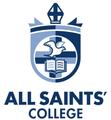VOCATIONAL EDUCATION

VOCATIONAL EDUCATION AND TRAINING (VET) / VET IN SCHOOLS (VETIS)
Vocational Education and Training (VET) involves students completing an Australian Qualification Framework (AQF) approved Qualification as part of their WACE.
VET programs can give you the opportunity to gain core skills for work and, in some cases, complete training in industry through workplace learning. You can begin training for your career while still at school by undertaking a VET qualification. Among the range of VET programs on offer there are, on-campus Certificates, off-campus Certificates, school-based apprenticeships and traineeships.
VET can contribute up to eight of the 20 units you need to achieve the WACE and 8 of the 14 C grades you need to achieve the WACE.
There are a variety of VETis Certificates available on-campus but their scope is limited and may not address the individual needs of the student. In this case, the College VET Coordinator will work with each individual student to target a Certificate and RTO (Registered Training Organisation) that meets the student’s individual needs.
If you are planning on undertaking General courses and not doing four ATAR courses in Year 11 or 12, you should speak with the VET Coordinator before enrolling in any courses or programs.
At ASC we will be offering the following AQF approved qualifications in 2022:
- 10297NAT Certificate II in Applied Language (French Context)
- CUA20215 Certificate II in Creative Industries
- SIT20316 Certificate II in Hospitality
- SIS20319 Certificate II in Sport Coaching
- BSB20120 Certificate II in Workplace Skills
- 10661NAT Certificate III in Applied Language (French Context)
- BSB30120 Certificate III in Business
- SIT30516 Certificate III in Events
- CUA31015 Certificate III in Screen and Media
The Certificates will be available to Year 10, 11 and 12 students with in some cases the Certificate II needing to be completed before embarking on the Certificate III. Listed Units of Competency are subject to change.
NB: Although the above on-campus offerings will be offered in 2022, Gateway Pathway students will still be encouraged to apply for off campus Certificates that best reflect their post-school career pathways plans. These qualifications may be offered by both North and South Metropolitan TAFE or other Privately Registered Training organisations. Gateway pathway students may also select from the on-campus offerings on the proviso their WACE requirements are addressed.
Please see the 2023 VET handbook for more extensive details of the VETis Certificates being offered on-campus in 2022 at All Saints’ College.
TAFE Profile Placements
Profile Delivery is where students access training (delivery and assessment) through Department of Training and Workforce Development (DTWD) funded profile hours. Profile Delivery is a perfect introduction into the world of work. Year 11 and 12 students can learn practical skills and gain an insight into the needs of the workplace. A Profile Delivery program will make you a more attractive proposition for employers and give you a head start in your chosen career.
Gateway students are eligible to apply for a Profile Placement which involves attending TAFE for one, or in some cases two, days a week during term time, normally for the whole year. Students apply directly to the relevant TAFE for the Qualification they wish to undertake and successful entry is subject to factors determined by the relevant TAFE, including Academic Performance. The College does not determine if a student gains entry to the program.
Information on Qualifications available for Profile Delivery are published by the relevant TAFE and will be sent out to students by the VET Coordinator when they are available.
Other Arrangements
Students may, in consultation with the VET Coordinator, source Qualifications from other Registered Training Organisations on a fee for service basis. Students who have other Qualifications in mind that they believe would be more suitable for their future career ambitions are encouraged to discuss this with the VET Coordinator.
AUTHORITY DEVELOPED WORKPLACE LEARNING (ADWPL)
Authority Developed Workplace Learning (ADWPL) aims to prepare students for employment by providing them with knowledge about what is valued in a work environment. Employers value Core Skills for Work (CSfW) which are transferable and vital in all forms of employment. These CSfW are developed over a lifetime and are sought after skills in education, training, workplaces and the community. Participating in a supported and structured workplace-learning program based on CSfW, involving a number of different workplaces, assists students to make informed decisions about their futures. These decisions are vitally important for students to move successfully from school to further education, training, employment and participation in the community.
ADWPL is a Vocational Education and Training (VET) Endorsed Program that provides opportunities for students to develop CSfW in the workplace while also obtaining credit toward the WACE. Students will be placed in an appropriate work situation that is of interest to them. The student will be required to maintain a formal record of their workplace learning via the workplace journal and log book.
In this mode of workplace learning, students will undertake training in a real workplace, during exam fortnights. They will be expected to demonstrate, in a practical way, the CSfW and written understanding of these skills in the context of the industry in which they are working.
Achievement of 55 hours of work provides one unit equivalent towards the WACE completion requirement. Students should be able to finish at least 110 hours in any one year, meaning they will complete the equivalent of two units a year.
Although there are no assignments in this program, students must meet the following expectations.
- Meet workplace hours, dress and behavioural expectations.
- Complete logbook requirements.
- Provide evidence of journal completion.
- Keep a record of tasks completed in the workplace and an attendance record.
- Complete a minimum of 110 hours in the workplace each year, which is equivalent to two units.
Students who select this endorsed program will need to ensure that they demonstrate “work ready” skills. For example:
- Good communication
- Good time management
- Being well organised
- Enthusiasm
- Showing initiative
Students that are considered not ready for work, will undergo training prior to work placement.

